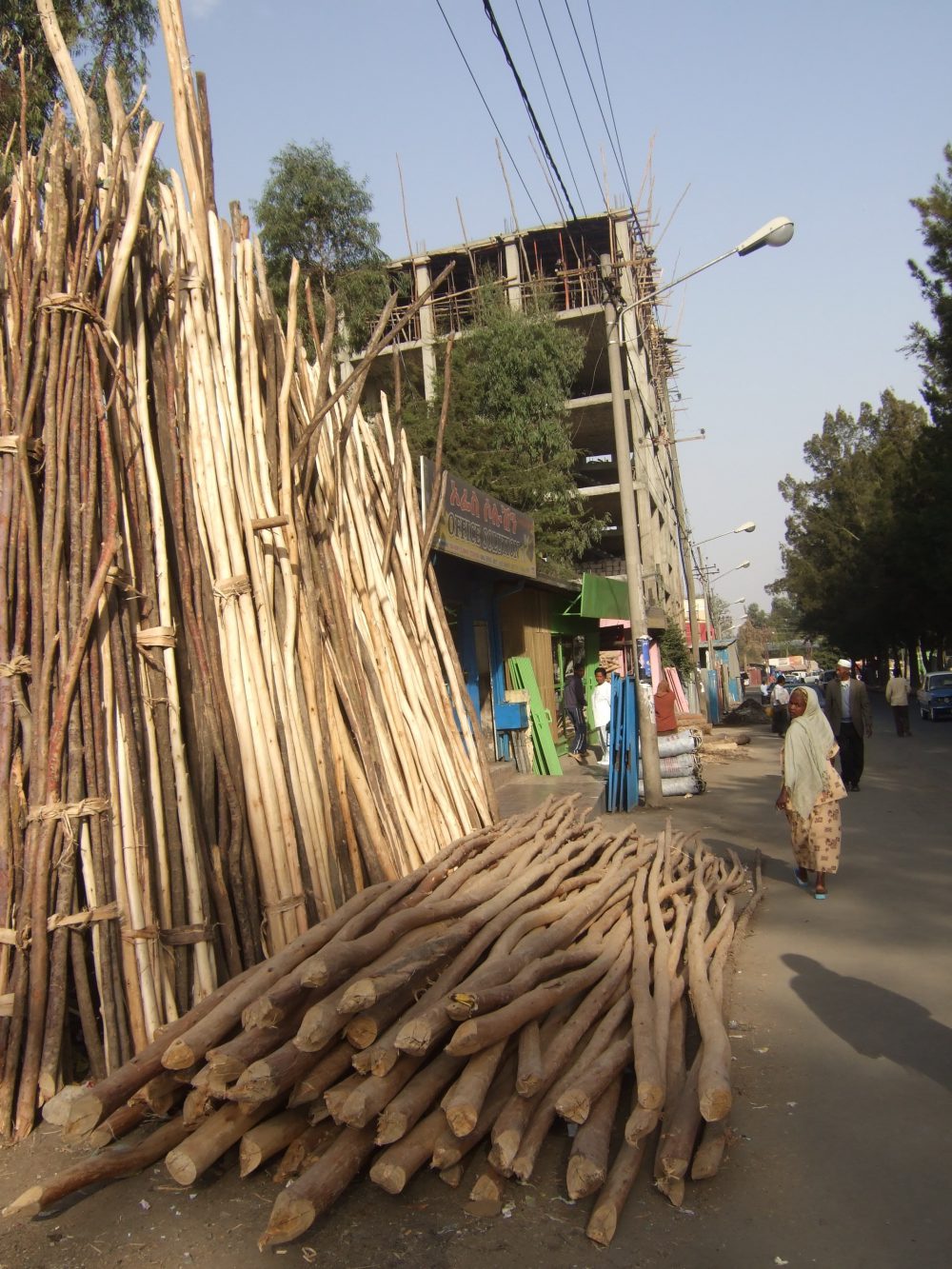This is 12&12, a audible day in the life in Ethiopia’s capital Addis Ababa. 12 hours of day, and 12 hours of night, which coincide quite exact with the sunrise and sunset, the main reason why the Ethiopian time count starts at 6 in the morning, meaning at 7 there is 1 hour of sunshine, etc. Which procedure repeats in the evening, when sun sets at 6, so at 7 there is 1 hour of darkness, etc.
12&12 tells the story in audio-only of a day in the life by having one subject for one hour, be it sport, nightlife, work, recreation and a lot of other activities happening in a multi million inhabitants metropole in East-Africa. There are no voice-overs, hardly any edits, and all material was recorded using two microphones only, at the time of the day it is transmitted, adjusted for daylight saving time.
The non-radio version of 12&12 was one of the first, if not *the* first sound exhibition in Addis Ababa. The daily hours were exposed at the Goethe Institute, and the nightly hours at the Alliance Française, both in Addis Ababa in 2011, for whose kind support the artists wished to express his thanks. Special thanks also goes to Melaku Belay of Club Fendika and Kidus ‘Vemund’
Berhanu, for invaluable assistance.
Jeroen Visser, Zürich, Wednesday February 8th, 2017
Night Hour 5 – Red Lights
10-11pm
Chechnya
Sat, March 26, 2011
This district of Addis Ababa near Haya Hulet is called Chechnya. It is *very* pro-active red light and a million of little bars are available for all kinds of adventures. The recording here was made out of an empty, parked car to not attract too much attention. Just standing around
would certainly have influenced the recording.
Night Hour 6 – Just another planet
11-12pm
St Giorgis Cathedral, Eastern Mass
Sat, April 26, 2008
After 55 days of fasting, Easter is the big relief, where everybody prepares for in the days before, by going to the hairdresser, buying sheep and goats to eat after the Easter Mass. On Easter Sunday the streets are decorated with piles of skins of the animals which had been walking there just a day before. This Mass at St George’s Cathedral is marking the end of the fasting period, with the churchgoers praying inside and the precentor audible over the church’s loudspeaker system.
Night Hour 7 – Energy!
12pm-01 am
Above Fendika Azmari Bet
Sun, March 20, 2011
The Christian Ethiopian version of the minstrel is called the Azmari, a singer and player, which comments in a humorous way every day life including the audience present. This is still practiced to the day of today, albeit that there are not that many Azmari Bets (the Ethiopian word for House) left.The evening starts with a song asking the Lord forgiveness for all the things which are going to be declarded later in the evening…
Night Hour 8 – Once
01-02 am
A house in Kazanchis
Sat, May 10, 2008
Kazanchis – the name stemms from the Italian Occupation and originally meant Casa Incis. It describes the type of housing construction for the Italian administration. Until 2012 there was a large number of Azmari Bets around there, so one called literally walk out one, and walk in the other. Since then, the reconstruction of the area took place and they nearly all disappeared, apart from Fendika, which is still strongly there.





You must be logged in to post a comment.